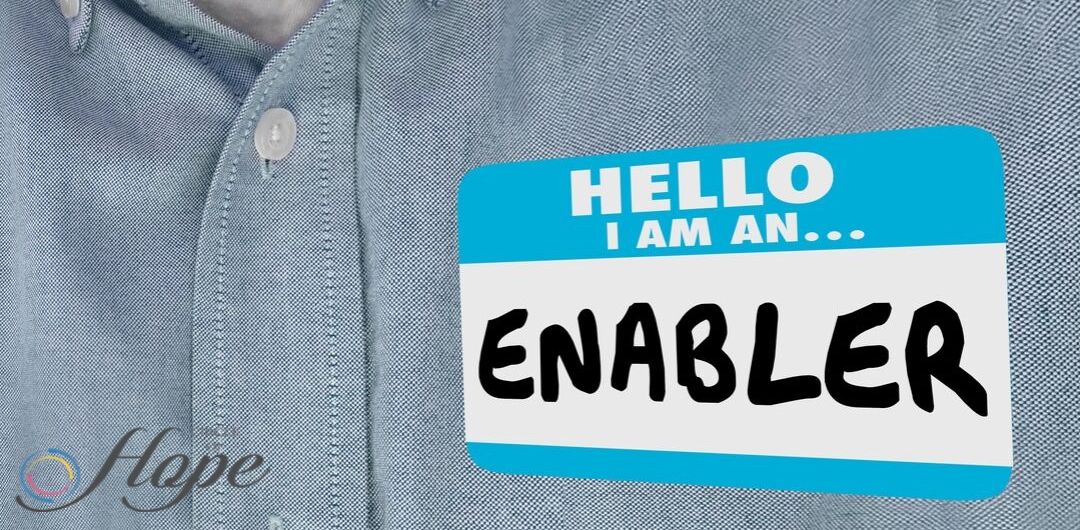Growing up, we’re taught that we should always be nice. After all, it is the polite thing to do. However, when you want to help someone you care about deal with their addiction, it goes way beyond just being nice. With this truth in mind, we’ve created a list of 5 ways to stop enabling your loved one’s addiction.
It takes creating healthy boundaries, getting out of your comfort zone, and saying no even when you don’t think you can. It means going against what we’ve learned is the right thing. It’s hard but it must be done if there is any chance to long-term recovery. In the spirit of ‘Do Something Nice Day,’ we’re going over how putting an end to your enabling may be the nicest thing you can do to help your loved one.
Enabling vs. Helping
We saw this meme and we thought it pretty much hit the nail on the head. It said:
If an addict is happy with you, you’re probably enabling them. If an addict is mad at you, you’re probably trying to save their life.
Anyone who has been through this before knows that these words are true. Here is a better contrast:
Help (or helping) is to make it easier for (someone) to do something by offering one’s services or resources.
Enable (enabling) is to give (someone or something) the authority or means to do something.
If you are ready to make a positive change, here are a few ways that you can start helping your loved one and stop enabling them, along with further resources for friends and family.
5 Ways to Stop Enabling Your Loved One’s Addiction
1. Stop the Financial Support
There have been plenty of times where your addicted loved one has come to you for financial support, and you knew it was because of their addiction. You don’t want to upset them, plus you want them to know you’re on their side. So, you give them money – constantly. If they know you will give them money, they will keep asking. If you continue providing financial support, you might as well start going with them to buy their drugs and alcohol for them.
“Continuing to give in to your loved one as a means to help them isn’t actually helping, it’s hurting them in the long run.”
2. Say No to Them
Saying “no” is another thing that you must do to put an end to enabling your addicted loved one. They’ll continue to come to you to give them rides, live in your home, and even ask you to lie for them. Continuing to give in to your loved one as a means to help them isn’t actually helping, it’s hurting them in the long run. You must learn to say no and realize it is best for their long-term benefit.
3. Allow Them to Take Responsibility
Taking action on both of the above will help your loved one to see the consequences of their addiction. This serves as a potential wake-up call for your loved one to realize they need help for their drug and/or alcohol abuse. Not letting them experience this will only continue to blind them from understanding the magnitude of their problem.
4. Stop Feeling Sorry for Them
Part of the reason why you’ve been enabling your addicted loved one is often that you feel sorry for them. You obviously want to see them happy, so you’re willing to do anything necessary for them to be just that. Well, it’s important for you to stop feeling sorry for them if you want to end your enabling ways.
5. Prioritize Yourself
In summary, one of the best things you can do to stop enabling is to make your own life and health a priority. Do things that make you happy and write up a list of positive things you’ve always wanted to do…and do them all!
Tough Love vs Enabling an Addition
While the sheer variety of recommendations and resources for working with a loved one and their substance abuse, it can be difficult to know where to turn. We recommend starting by following the above guidelines, from those who have gone through their own battles with family members and addiction. Although it can be very difficult to begin saying ‘No’ and setting up the appropriate boundaries, there are a number of avenues available for support, beyond professional medical assistance, for you personally.
While we invite you to call our Admissions team at Circle of Hope Treatment any time to discuss the possible means of getting your loved one needed treatment, if they are not yet ready to seek change, it is vital that you take care of yourself and your own wellbeing. There are a ton of support options out there, and the 12 step programs that often help those facing alcohol or substance use disorders also have ‘sister organizations’ such as Al-Anon, and Nar-Anon, that are specifically designed to help the friends and family of alcoholics and adddicts.
Family Programs and Peer Support for Loved Ones
In addition to these groups, Circle of Hope and the majority of reputable, accredited rehab facilities actively seek to promote family involvement in treatment. Even if your loved one is the ‘Pre-Contemplation’ phase of the stages of addiction, it can absolutely be worthwhile to consider attending some of our Family Program events that are open to the public. You can draw inspiration from others’ successes and speak with people who have made it through the same challenges you are now facing.
Substance abuse can often affect the family members of an addicted person as much as it can the actual user, with the symptoms often becoming surprisingly similar. While family members won’t undergo the same physical withdrawals as their addicted loved one, they can experience similar psychological symptoms due to the perceived (and actual) loss of the person they know and love, replaced by an addict who cares only about their drug of choice.
Choosing Circle of Hope for Long Term Recovery
Other options exist for those whose substance abuse disorder has progressed to a level where they present a clear risk to themselves or those around them. In such cases, the state may provide a legal framework for forced admission to detox or mental health facility. Look at the laws in your state to determine whether or not the potential for such court-ordered treatment is feasible or work for the addicted person in your life. We also encourage you to reach out to our team at Circle of Hope to find out whether a professional intervention may be called for in the case of your loved one. Clients whose loved ones had all but given up on them have found long term recovery through the staging of a skilled intervention that allowed them to open up to the possibility and promise of seeking residential treatment for their substance abuse.
For all the family members and friends struggling with the addiction of a loved one, we hope that this article has proved helpful and placed the emphasis on the importance of self-care and boundary setting, among other measures that can help stop enabling and begin promoting recovery. If you’d like further assistance, remember, we are only a phone call away!


